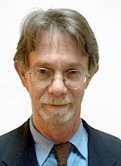By MORDECAI SPECKTOR
J.J. Goldberg, former editor-in-chief and current columnist for the Forward in New York City, will discuss the relationship between Israel and American Jewry at the (Re)Discover Israel Conference and Fair on Sunday at Mount Zion Temple in St. Paul.
The Israel event runs from 9:30 a.m. to 4:30 p.m. Sunday. The American Jewish World is a co-sponsor. In addition to Goldberg, Rabbi Michael Melchior, a former member of the Israeli Cabinet during the premiership of Ehud Barak, will be a featured speaker.
Goldberg is also Mount Zion’s Scholar-in-Residence this weekend, and will speak on “Wrestling with Israel: What’s an American Jew Supposed to Do?” at 7:30 p.m. Friday Shabbat services. On Saturday, from 1 to 3 p.m., Goldberg will lead a study of three 19th century Zionist thinkers, “What Is the Future of Zionism?”
J Street’s Minnesota chapter has announced an event, “The Role of the American Jewish Community in Reaching a Two-State Solution: A Conversation with J.J. Goldberg,” 3:30 to 5 p.m. Saturday, in Mount Zion’s Johnson Social Hall.
In a telephone conversation with the Jewish World last week, Goldberg explained that American Jews’ attitudes about Israel are changing. “You’ve got the whole J Street phenomenon, you’ve got assimilation. The New York Times reports today about the group in the Bay Area — and we’ve seen it in New York, too — Jews who support boycotts against Israel — a real distancing. Where do we all come out of this? How do we preserve the relationship [with Israel]? What should our relationship be?”
In other words, there is a mish mash of Jewish views toward Israel these days. And that reminds Goldberg of an earlier period in Jewish communal life, when there was a “lively debate among Bundists who were against Zionism, Zionists who were in favor of an Orthodox Israel, Zionists in favor of a socialist Israel, Orthodox Jews who were against Zionism; and all these views were legitimate because they were all about what’s good for the Jewish people.”
That “diversity of views” is emerging again, Goldberg commented, and added that support for Israel has supplanted the importance of Torah for many American Jews.
“What’s good for Israel is a very important question to me,” he said. “I don’t think boycotts of the State of Israel are any good. It hurts the State of Israel; it hurts my family, it puts them in danger.”
Regarding contentions about Israel among American Jews these days, Goldberg noted, “It’s always difficult to measure… what does American Jewry think. We’re a very diverse community. There’s a very small percentage that wants nothing to do with the community. There’s a larger minority… who are deeply involved, who go to shul regularly, most of them keep kosher, they send their children to day schools — that’s about 20 percent. Then you’ve got the broad middle that sends their kids to Hebrew school for Bar Mitzva, they light Hanuka candles… they have a [Passover] seder, they go to shul on Yom Kippur… they’re not stopping their connection, but they’re not that interested; they’re becoming somewhat less interested. The alienation between the deeply interested and the sort of interested is growing.”
The “deeply interested” cohort of American Jews is becoming “more insular,” while other Jews “are becoming more American every generation,” Goldberg said.
He agreed with my observation that some American Jews have closed their minds regarding any criticism of Israeli policies. “There is definitely a hardening of attitudes and a softening on the other side,” Goldberg noted, and pointed out that “80 percent of Jews voted for Obama” — these are the Jews “who don’t go to shul on Shavuos.”
And the hawks and hardliners, “They’re the ones who show up,” said Goldberg. “They’re the ones who are passionate, and passion counts for a lot.”
Goldberg could not cite a definitive cause, or combination of issues, that accounts for Jewish alienation from Israel. Is it the intractable Israeli-Palestinian conflict, the Who is a Jew? controversy, or are Jews “simply adrift? I don’t know,” he admitted.
Goldberg said, “The answer to me is, first of all, to remember that we’re all Jews. I’ve got cousins that vote Republican. I don’t agree with them; but they’re my cousins, they’re my family. I’ve got in-laws who live in the West Bank; I love them very much, we talk all the time. That’s what it means to be a community, to be a people.”
At the same time, Jews should fess up about distinct differences among Members of the Tribe — in the States and in Israel.
“All of the talk about how ‘we are one,’ we are the same, we’re brothers and sisters under the skin, it’s phony,” remarked Goldberg. “We are different. We’re three or four generations, five generations from the shtetl, where we were all the same. They’ve grown one way, and we’ve grown another. But cousins are family, too, especially in a world where you’re alone.”




















